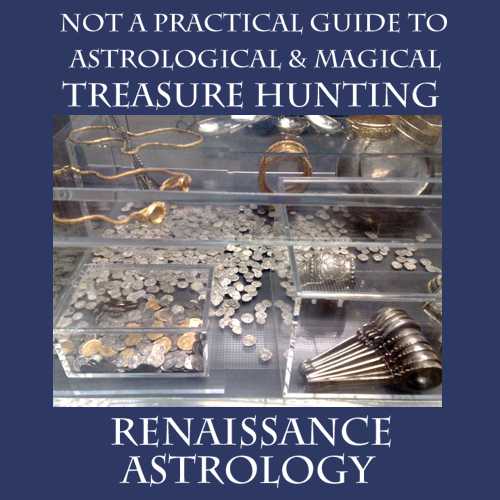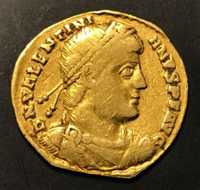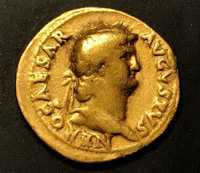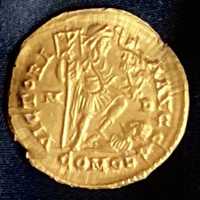Not a Practical Guide to
Astrological & Magical Treasure Hunting
Astrological & Magical Treasure Hunting



I frequently get very serious inquiries, and the inquirer appears to be under the impression that they were the first to have the idea, regarding using astrology for gaining instant billions. The modern methods are either the lottery or some sort of financial trading, it used to be stocks, then foreign exchange, then day trading and now crypto currency seems to be in favor. Just to be clear, I have no such secrets nor ability to generate billions through using astrology for lottery or financial trading. As I explain to inquirers if I knew how to make huge amounts of money trading, I would simply do it and retire, why would I sell it to someone else? But hope springs eternal.

What is interesting to realize is that the purported use of astrology to gain instant riches is very old, just the method has changed. For medieval and Renaissance astrologers buried treasure was the focus. Now to moderns this seems far fetched, like something out of a 30s pirate movie, but in fact, there is actually a considerable amount of treasure buried in Great Britain, stretching back to Celtic Britain, peaking at times of stress, instability and invasion.
The great English jurisprudent William Blackstone, writing in 1765 says,
"The finding of deposited treasure was much more frequent, and the treasures themselves more considerable, in the infancy of our constitution than at present. When the Romans, and other inhabitants of the respective countries which composed their empire, were driven out by the northern nations, they concealed their money under-ground; with a view of resorting to it again when the heat of the irruption should be over, and the invaders driven back to their deserts. But as this never happened, the treasures were never claimed; and on the death of the owners the secret also died along with them."
1 Blackstone's Commentaries *286.
The Anglo-Saxon period saw another surge of buried treasure amidst the onslaught of the Vikings and continued intermittently as a method of secreting valuables. So treasures could and continue to be found. The Hoxne Hoard, discovered in Suffolk in 1992 is the greatest hoard of Roman gold found anywhere in the Roman Empire, while the Staffordshire Hoard found in 2009 is the largest Anglo-Saxon hoard found to date.
At common law treasure-trove, which as Blackstone explains is,
"…any money or coin, gold, silver, plate, or bullion, is found hidden in the earth, or coin, gold, silver, plate, or bullion, is found hidden in the earth, or other private place, the owner thereof being unknown; in which case the treasure belongs to the king: but if he that hid it be known, or afterwards found out, the owner and not the king is entitled to it. Also if it be found in the sea, or upon the earth, it does not belong to the king, but the finder, if no owner appears."
1 Blackstone's Commentaries *286.
Under the English Treasure Act 1996, all treasure belongs to the Crown, and finders must report it to the coroner, who decides whether it is treasure and the value. The British Museum or other national museums are notified and if the treasure is to be transferred to a museum the finder and property owner are split a reward of the market value of the treasure. In the US, each state has its own law with regard to treasure. In order to be treasure typically gold, silver and sometimes paper money must be long lost and the owner unidentifiable. Some states use the common law of treasure trove, but bestow the treasure trove on the finder, some hold it belongs to the owner of the property and some states hold that treasure belongs to the state. Note, treasure is long lost and the owner long gone and unidentifiable, this is not a general "finders keepers" rule for lost or mislaid property.

While most modern finds of hoard come from the use of metal detectors, the traditional method used astrology and other forms of divination or the use of magic and the invocation of spirits. The famous English astrology William Lilly gives rules for finding buried treasure with horary astrology at pages 215-216 of Christian Astrology. We must distinguish between treasure lost by the querent and treasure hunting. In treasure hunting, once we have found a likely spot we can ask if there is treasure there. We first look to see if Venus, Jupiter or the North Node is in the 4th house, which signifies treasure.
If so, there is treasure or something of value. Mars or Saturn well dignified in the 4th also indicate treasure. CA 216. Once treasure is indicated, we look to the lord of the 7th to indicate what it is. The Sun ruling the 7th shows gold, The Moon, "silver, plate, crystal or jewels..." CA 216. Lilly then discusses the various types of treasure and the question of whether the querent will actually obtain the treasure. CA 216-8.
There were, of course, numbers of other ways of finding treasure. Dreams were a classic method. Reginald Scot asks, “How manie have beene bewitched with dreames and thereby made to consume themselves with digging and searching for monie &c whereof they or some other have drempt?” Reginald Scot, Discoverie of Witchcraft, Bk X, ch 7.
The use of divining or Mosaical rods to find treasure was also quite common. Continuing in Chapter VII of Book X, entitled “The art and order to be used in digging for monie...” Scot states, "There must be made upon a hazell want three crosses, and certeine words both blaspemous and impious must be said over it, and hereunto must be added certeine characters, & barbarous names." Reginald Scot, Discoverie of Witchcraft, at 163.
An additional early modern example is provided by John Baptista Porta in his Natural Magick, where he states,
"The greater part of Cozners, when they are themselves very poor and most miserable of all men, they profess themselves able to find out Treasures, and they promise to other men what they want themselves, and they use four Rods that are double forked, the tops whereof sticking close together crossways, they hold the lower parts of them with their hands open, neer their belly, they seem to mumble Verses, and the Rods fall down, and where they fall, they bid those men to dig what would find Treasures."
John Baptista Porta, Natural Magick (1658, reprnt. New York, Basic 1957) Bk. XX, Ch. 8 at 405-6.
We find a modern parallel in hoodoo or rootwork, Southern folk magic, which is predominately African magical practice, but took in a good deal of European magical practice as well. Our first hoodoo parallel is from Rod Davis’ American Voudou, a contemporary account of African diaspora religion in the United States. Rod Davis, American Voudou (Denton, TX, Univ N. Texas Press, 1999). Davis’ informant is Sarah Albritton of Ruston, Louisiana, who states,
"Her family lived in Clay, but she’d gone to Ruston to visit her cousins. They’d heard some money had been lost out in the woods and went to find it, using a silver spoon dangling from a red string that would “point to the money.” Deeper and deeper they ventured into the forest. 'Then we saw a light,” Sarah said. “It was the spirit of the person who lost the money. Everybody was afraid to go any farther and we ran back. We buried a root under the doorstep to keep away the spirit. But I went back that night and saw the light again...and decided never to go back.'"
Davis, American Voudou, at 94-5
That treasure was guarded by spirits was a common, basic belief. The Key of Solomon, a medieval grimoire, gives the following admonition,
"The Earth being inhabited, as I have said unto thee, by a great number of Celestial Beings and Spirits, who by their subtilty prevision know the places wherein treasures are hidden, and seeing it often happeneth that those men who undertake a search for said treasures are molested and sometimes put to death by the aforesaid Spirits..."
The Key of Solomon the King, ed. S. Liddell MacGregor Mathers, (1888, reprnt. York Beach ME, Weiser, 1989 ed.) at 57. The Fifth Pentacle of Saturn from the Greater Key of Solomon is for protection against exactly this sort of spirt, "This Pentacle defendeth those who invoke the Spirits of Saturn during the night; and chaseth away the Spirits which guard treasures." The Key of Solomon the King at 68.
This connection between spirits and treasure is also widespread in hoodoo practice. The key hoodoo sourcework Henry Hyatt's Hoodoo, Conjuration, Witchcraft and Rootwork (1974) has an entire section entitled “Spirits Guard Buried Treasure.” Hyatt, Hoodoo, Conjuration at 111-135. After finding the treasure the treasure hunter must then surmount the dangers of the spirit guardian, which might also remove or transform the treasure if the proper precautions were not taken.
Hyatt’s informant 1006 from St. Petersburg, Florida states,
"There was a man who went to look for a hidden treasure because he had dreamed that in this particular spot there was a treasure hidden...When he arrived at the spot designated in his dreams the wind began to blow. But the old man paid no attention. He began to dig and dig and dig. Finally, the rain began to pour, thunder began to roll, lightning began to flash. But the old man dug just the same. After awhile his pick struck something that sounded like an iron pot...And when the pot was opened he saw that it was filled with gold and silver. The old man forgot that he wasn’t supposed to utter a word before he got the silver in the pot and the old man suddenly cried, 'Lord have mercy! Look what I have found!' At those words which were spoken...every bit of the silver turned to black charcoal and the pot turned to just a bit of clay."
Hyatt, Hoodoo, Conjuration at 116.
Our master Lilly himself was no stranger to treasure hunting. In his autobiography he discusses a 1634 treasure hunt in Westminster Abbey complete with Mosaical rods, the uncovering of a coffin, and apparent spiritual intervention. "From the cloysters we went into the Abbey church, where, upon a sudden, (there being no wind when we began) so fierce, so high, so blustering and loud a wind did rise, that we verily believed the west-end of the church would have fallen on us...” William Lilly, William Lilly’s History of His Life and Times, (1715, reprnt. London, Charles Baldwyn, 1822) at 79-80.
One method prescribed for protection for the guardian spirits was the prayer and Bible reading. Scot says,
"And whilst digging treasure is a digging, there must be read te psalms, De Profundis, Missa, Misereatur nostri, Requiem, Pater Noster, Ave Maria, Et nos inducas in tentationem, sed libera nos a malo, Amen. A porta inferi credi viver bona & c. Expectate Dominum Requiem aeternam. And then a certain prayer."
Discouverie of Witchcraft, Book X, ch. 7. This is an odd mixture of the Our Father, Ave Maria and prayers for the dead and the Psalms.
Here are some modern examples of reading the Bible for protection from the spirits. Hyatt’s informant 7 from New York City, states, "...[T]here was a big crowd went out one night to hunt money and they were getting to the box. The had a woman reading the Bible. They always say to read the Bible to keep down the spirits...There’s certain Scriptures you read for spirits, they say." Hyatt, Hoodoo, Conjuration, at 127. Similarly, Hyatt’s informant 1120(a) from Waycross, Georgia, indicates that it is necessary during treasure hunting to, “Read de Bible-King Solomon...” Hoodoo, Conjuration at 121.
Experienced astrologers and magic users should feel free to experiment with these methods, but again, I must ask readers not to contact me for assistance if they fail to locate or conjure instant wealth or in hopes of obtaining my secret treasure hunting method. I have no skill at using astrology for lottery or gambling, nor for financial trading or treasure hunting. But given the wide ranging and voluminous source material for treasure hunting it is clear that our ancestors were obsessed with it as we are with the lottery or financial speculation. The more things change, the more they stay the same!